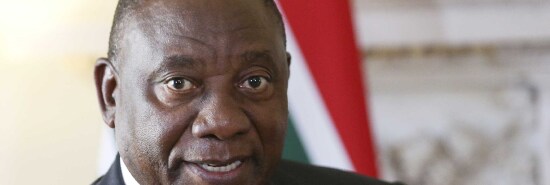
Will South Africa break free from ANC corruption?
Aidan Springs
Last week, South Africa‘s largest opposition party, the Democratic Alliance, announced that they had entered talks with six other minority parties in order to discuss the possibility of forming a coalition against the ruling African National Congress.
This development comes at an incredibly important point for South Africa, a nation that has been plagued by the poor governance of the ANC for decades.
BIDEN TAKES ANOTHER STAB AT CANCELING STUDENT LOAN DEBT
Since the end of Apartheid, the ANC has maintained a monopoly on governance in South Africa. The so-called “Party of Mandela” has long ridden off of the popularity of the freedom fighter. Optimists in the late 1990s assumed that the ANC’s new pluralistic and multiethnic message would inevitably lead to growth, stability, and equality in South Africa.
Yet today’s ANC is far from anything Nelson Mandela would be proud of. ANC leaders have managed to line their pockets with taxpayer dollars and bribes from private companies through a complicated network of corruption. Former South African President Jacob Zuma was forced to step down following the unraveling of a massive bribery scandal between his government and the Gupta Brothers, the owners of a number of massive corporations in South Africa who received government contracts in exchange for massive bribes paid to ANC members.
Zuma’s successor has had similar luck in his own attempts at skimming some off the top.
Current president Cyril Ramaphosa came under public scrutiny last year following the disappearance of over $4 million in foreign currency from his private hunting lodge. Ramaphosa repeatedly dodged questions about the disappearance, refusing to clarify exactly how much money was stolen, how he obtained so much foreign currency, and why he refused to report the incident to the police.
As if all of this high-level corruption was not bad enough, South Africa continues to slip further and further away from developed nation status. Once one of the fastest-growing economies on the continent, today, South Africa is dragged down by crippling national debt, much of which was accrued due to the ANC’s corruption and poor governance. According to Statista, South Africa’s external debt has reached more than $280 billion and is expected to rapidly climb to nearly $450 billion by 2028.
This year, however, the main issue on the ballot is the country’s failing electrical grid. South Africa’s national energy provider, Eskom, has begun to enforce massive energy cuts through a program known as “loadshedding,” by which the company cuts off power for most South Africans during most of the day. This has crippled the nation’s economy even further, and begun to push many South Africans away from the repeatedly ineffective leadership of the ANC.
CLICK HERE TO READ MORE FROM THE WASHINGTON EXAMINER
So, will the Democratic Alliance be able to secure power in next year’s election? Unfortunately for South Africa, it seems unlikely. While many viewers abroad can clearly see the shortcomings of the ANC, most South Africans still remain doggedly loyal to the party; after all, it was the ANC that ended Apartheid and lifted millions out of second-class citizenship. However, as the ANC continues to highlight its inability to govern, it seems likely that its grip on power will continue to slip.
Aidan Springs is a rising Junior at American University and a current National Journalism Center intern.
